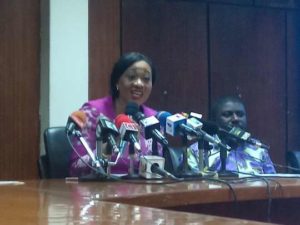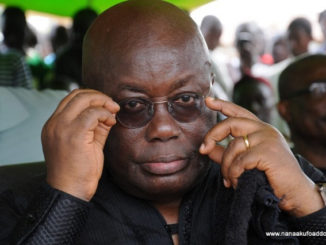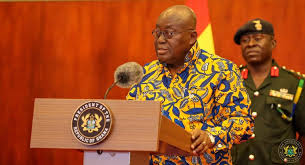 The committee to work out the modalities for the implementation of the Representation of the People’s (Amendment) Law (ROPAL) has identified three key actions for a successful roll-out.
The committee to work out the modalities for the implementation of the Representation of the People’s (Amendment) Law (ROPAL) has identified three key actions for a successful roll-out.
They are public fora in all regions to solicit inputs into the operationalisation of the law, extension of the consultations to Ghanaians living in the Diaspora and visits to four countries that are currently implementing external voting.
The selected countries are the United States of America (USA), the United Kingdom, Mali and South Africa.
At the first meeting of the committee, set up by the Chairperson of the Electoral Commission (EC), Mrs Jean Mensa, yesterday, the members also agreed to issue out a public notice requesting written submissions from members of the public towards the successful implementation of the law.
The committee, which is chaired by the Deputy Chairperson of the EC in charge of Administration, Mr Eric Bossman Asare, said it would later announce dates for the fora with various stakeholders in all the regions to solicit inputs from all Ghanaians into the operationalisation of the law, in accordance with a High Court ruling of 2017.
Providing the background to the meeting, the Secretary to the committee, Mr Christian Owusu Parry, said ROPAL was already a law which the EC was mandated to implement, adding that the law was passed in 2006 but little was done with it between 2008 and 2011.
He said a previous committee set up to make recommendations on the way forward for the EC submitted its report in September 2011.
Since that time, he recounted, nothing had been done until some aggrieved persons went to court to compel the EC to implement the law.
Following the court ruling for the law to be implemented, Mrs Mensa set up another committee to study what had been done and take into account changes that had taken place in the country’s electoral system since then in order to have a current and updated way forward.
On the requirements for a person living abroad to be registered, one of the conditions, as stated in the ROPAL, was that such persons had to provide other forms of identity, in addition to valid resident permits in that country.
But the representative of the smaller parties on the committee, the Leader and Founder of the Liberal Party of Ghana (LPG), Mr Percival Kofi Akpaloo, was of the view that that requirement had to be taken out because there was a good number of Ghanaians living as illegal immigrants in foreign lands but whose regular remittances to Ghana had contributed substantially to the national economy and could, therefore, not be disregarded because of the lack of a valid resident permits.
The meeting then came to a consensus that eligible voters must have valid Ghanaian passports and Ghana cards, stressing that those two should suffice.
–
Graphic online



